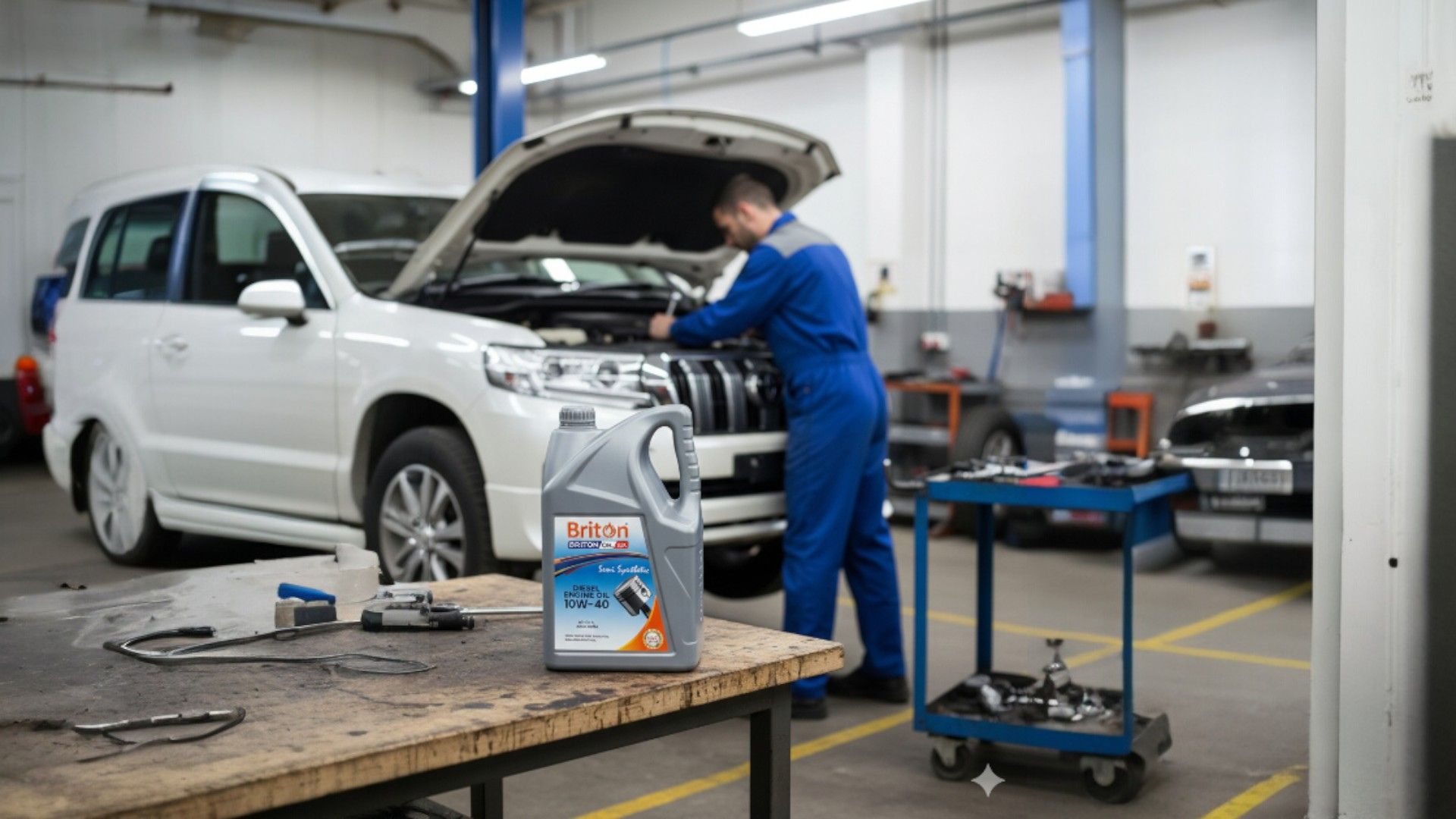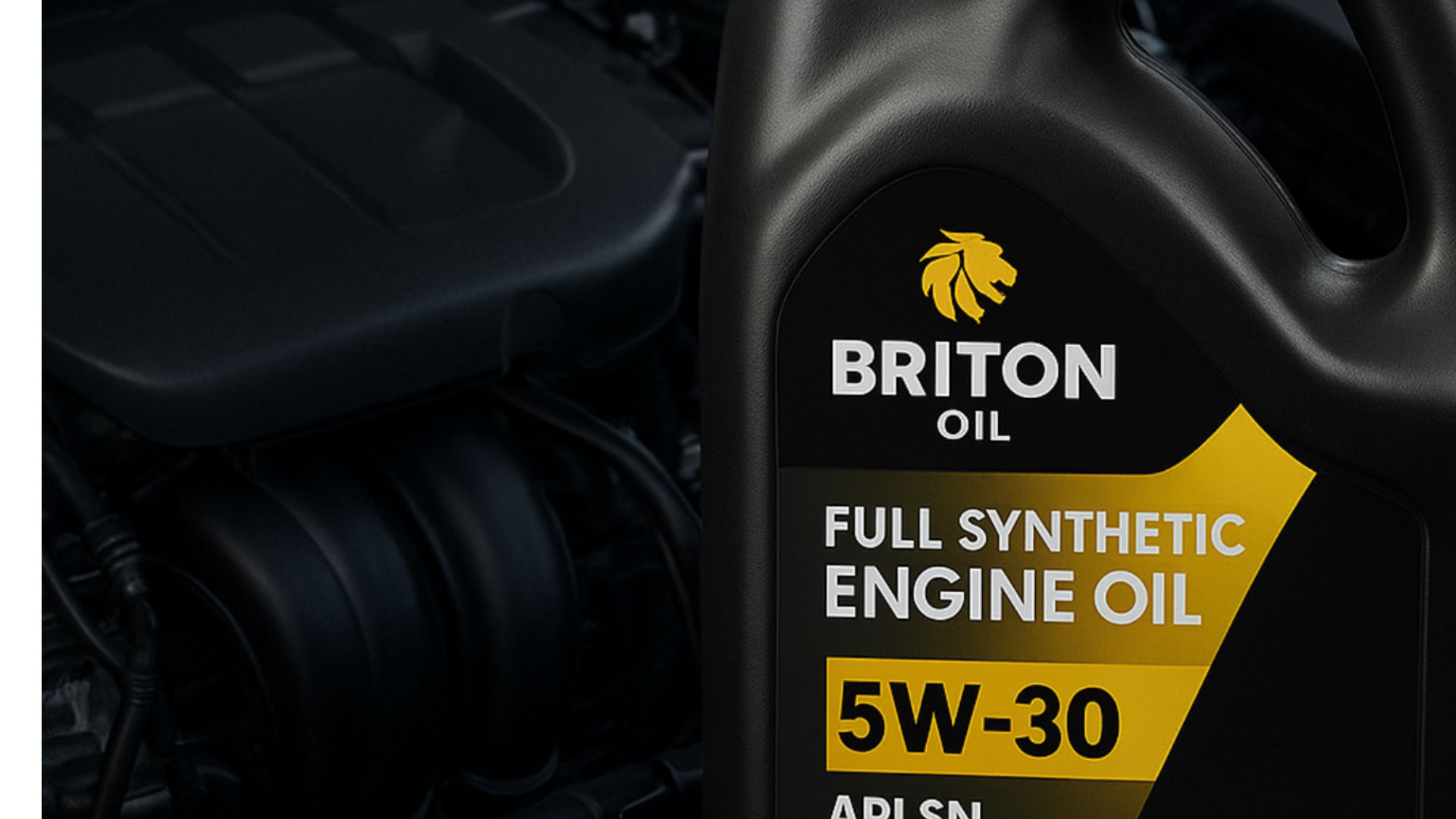How to Choose the Right Viscosity
Selecting the right engine oil viscosity is one of the most important decisions for maintaining your car’s engine health. Whether you drive in hot climates like the United_Arab_Emirates, cold regions, highways, or heavy-traffic areas, the correct viscosity ensures better lubrication, improved performance, and long engine life. In this guide, we break down what oil viscosity means, how viscosity grades work, and how to choose the best one for your vehicle.
What Does Viscosity Mean?
Viscosity simply refers to how thick or thin an engine oil is.
- Thin oils flow easily at low temperatures.
- Thicker oils provide better protection at higher temperatures.
Because engines operate in a wide range of temperatures, a multi-grade oil such as 5W-30 or 10W-40 is used to ensure optimum performance.
Understanding Viscosity Numbers (Example: 5W-30)
A viscosity grade like 5W-30 has two numbers:
1. The First Number (5W)
- The “W” stands for Winter.
- This indicates how the oil behaves in cold temperatures.
- A lower number (5W, 0W) means the oil remains thin enough to flow easily during cold starts.
2. The Second Number (30)
- This shows how the oil behaves at high operating temperatures.
- Higher numbers (40, 50) indicate thicker oil at engine-operating temperatures.
For example:
- 5W-30 → Thin in winter + medium thickness when hot
- 10W-40 → Slightly thicker in cold + thicker at high temperature
Common Engine Oil Viscosity Grades Explained
✔ 5W-30 – Best for Modern Engines
Ideal for:
- New vehicles
- Fuel-efficient engines
- Turbocharged cars
- Hot climates (like UAE)
This oil provides excellent protection and performs well in extreme heat, making it a popular choice.
Explore 5W-30 oils here → https://britonoil.com/oil/
✔ 5W-40 – High-Performance Choice
Recommended for:
- Sports cars
- SUVs
- Turbo engines
- High-load driving
It remains stable under high stress and high temperatures.
✔ 10W-40 – Good for Older Engines
Ideal for:
- Vehicles with higher mileage
- Older engines
- Engines requiring thicker oil
Because it’s slightly thicker, it reduces oil consumption and protects worn-out engine parts.
✔ 0W-20 / 0W-16 – Ultra-Fuel Efficient Oils
These oils are very thin, mostly used in:
- Hybrid vehicles
- Japanese cars (Toyota, Honda)
- Eco-friendly engines
How to Choose the Right Viscosity for Your Car
1. Check Your Vehicle Owner’s Manual
Your car manufacturer provides the recommended viscosity grade. Always use that as your first reference.
2. Consider Your Climate
- Hot climates (UAE, Saudi Arabia):
5W-30, 5W-40, 10W-40 - Cold climates (Europe, Canada):
0W-20, 0W-30, 5W-30 - Mixed climates:
5W-30 is the most versatile choice.
3. Evaluate Your Driving Style
- Heavy traffic: Choose thinner grades for better flow (5W-30).
- Highway driving: Choose stable grades (5W-40).
- Heavy load or towing: Choose thicker oils (10W-40).
4. Check Engine Age
- New engines: 5W-30 or 0W-20
- Old engines: 10W-40 or 20W-50
Older engines have larger clearances, so they require thicker oil.
5. Use High-Quality Synthetic Oil
Synthetic oils offer:
- Better heat resistance
- Cleaner engine performance
- Longer drain intervals
Explore Briton Oil synthetic products britonoil.
Why Viscosity Matters for Engine Health
Using the wrong viscosity can cause:
- Poor lubrication
- Reduced fuel efficiency
- Engine knocking
- Sludge formation
- Longer cold starts
- Overheating
Choosing the right oil ensures smoother performance and longer engine life.
Final Thoughts
Understanding engine oil viscosity is essential for keeping your car running smoothly, especially in demanding climates like the UAE. The right viscosity grade—whether 5W-30, 10W-40, or any other specification—directly affects engine protection, fuel efficiency, and overall performance. Always consider your vehicle manufacturer’s recommendations, your daily driving conditions, and the age or mileage of your engine when selecting oil. Hot weather, heavy traffic, and long-distance driving all require a viscosity that can maintain stability under high temperatures. For maximum protection, durability, and long-lasting engine health, Briton Oil provides premium-quality lubricants engineered for both modern and older engines.
Explore our complete range here → https://britonoil.com/





